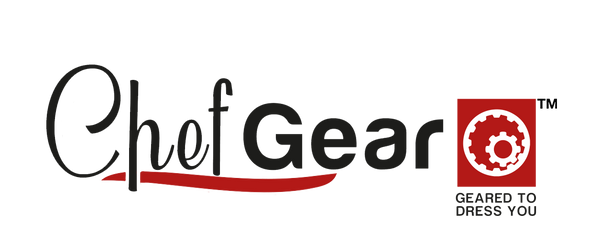Protective Clothing for the Food and Hospitality Industry
The function of protective clothing for the food and hospitality industry is two-fold: not only does it protect the people preparing food, it protects the customers as well. Kitchens can be dangerous places where injuries can easily happen, and customers are concerned about whether the preparation of their meal is hygienic. By wearing protective clothing, kitchen workers can ensure both.
Cut resistant gloves are an important layer of protection against sharp knives, especially for cutting and chopping tough produce. They also ensure the hygiene of the food being prepared by ensuring that no sweat or blood from a small nick gets onto it. Oven gloves prevent burns and are a must when dealing with hot stovetops, pots, pans, baking trays and dishes. You may have noticed chefs on your favourite cooking shows wearing blue vinyl gloves. These offer protection from certain foods like hot chilis which can cause irritation if handled without gloves.
When working with foods like chilis, safety goggles are also advisable. They are also a good idea when dealing with hot oil.
Proper shoes with reinforced toes protect from sharp and heavy objects being dropped on toes and feet. Slip resistant soles also prevent tumbles in the kitchen, which often has wet, slippery floors.
An apron made from thick, durable, fire-resistant fabric is another must-have safety item in a commercial kitchen. It will prevent burns from hots liquid and make it less likely that the chefs clothes catch fire when working over an open flame. A corner of an apron also makes an effective oven glove in the midst of a busy service.
A hairnet or chef’s hat is the final piece of protective equipment a chef should consider. It keeps hair out of the face and stops longer pieces from catching fire or becoming entangled in equipment. It also ensures that no strands end up in a customer’s meal. Never a good thing!
It’s not only chefs who need to wear protective equipment in the kitchen, though. Cleaning staff should also be provided with protective equipment. Rubber gloves ensure hands are protected from strong chemicals used for industrial cleaning, especially of ovens. Rubber gloves come in different colours, lengths and thicknesses and offer varying levels of protection.
A waterproof apron can protect against more than ensuring your clothes don’t get stained. They ensure no burns from hot water or irritation from chemicals. Non-slip shoes are also a must in a cleaner’s wardrobe. Water and soap are tools of the trade and make for slippery floors which can result in serious injury so appropriate shoes are essential.
Keeping protective equipment clean is an important element of hygiene in the food and hospitality industry. Wipe waterproof items like gloves, aprons and shoes with antibacterial wipes to kill germs and remove other chemicals. If they can be washed in machine, they should be given a rinse at least every three days. Fabric equipment like jackets, aprons and gloves should be washed at high temperatures with biological detergents which can break down organic matter, such as food or bodily fluids to ensure they are hygienic. Also remember to keep clothing and equipment used for different tasks separate when cleaning. Kitchen equipment and clothing shouldn’t be washed with cleaning items and garments. This prevents any chance of cross contamination from different germs.


0 comments